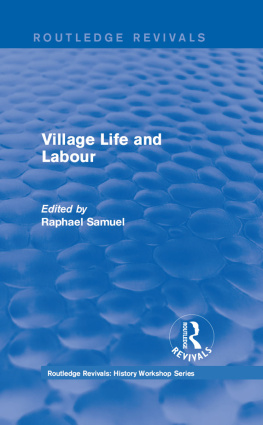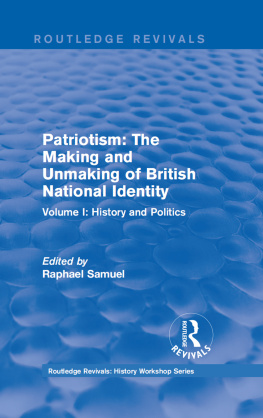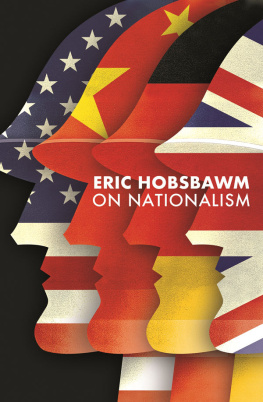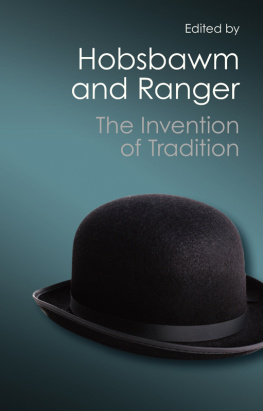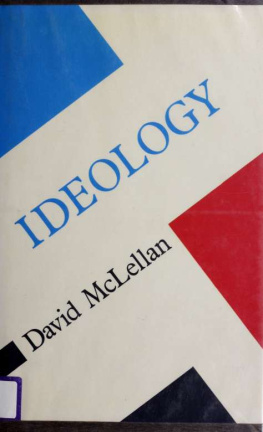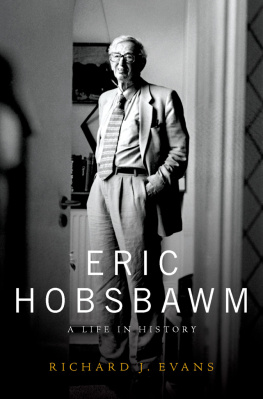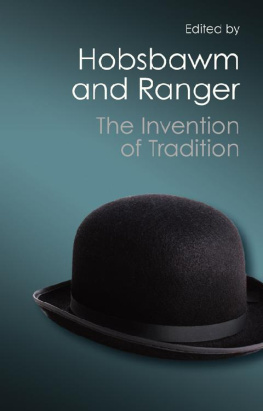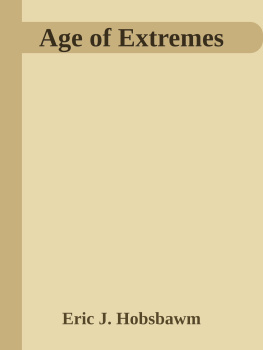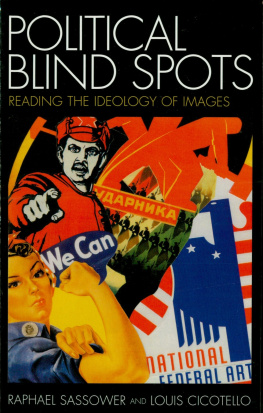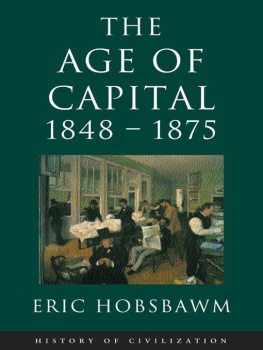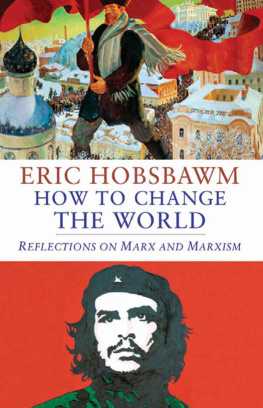Routledge Revivals
Culture, Ideology and Politics
First published in 1982, this book is inspired by the ideas generated by Eric Hobsbawm, and has taken shape around a unifying preoccupation with the symbolic order and its relationship to political and religious belief. It explores some of the oldest questions in Marxist historiography the relationships between base and superstructure, art and social life. However it also examines the newest and most problematic questions, such as the relationship of dreams and fantasy to political action, or of past and present historical consciousness to the making of ideology. The essays, which range widely over period and place, are intended to break new ground and take on difficult questions.
Culture, Ideology and Politics
Essays for Eric Howsbawm
Edited by
Raphael Samuel and Gareth Stedman
Jones
First published in 1982
by Routledge & Kegan Paul
This edition first published in 2016 by Routledge
2 Park Square, Milton Park, Abingdon, Oxon, OX14 4RN
and by Routledge
711 Third Avenue, New York, NY 10017
Routledge is an imprint of the Taylor & Francis Group, an informa business
1982 History Workshop Journal
All rights reserved. No part of this book may be reprinted or reproduced or utilised in any form or by any electronic, mechanical, or other means, now known or hereafter invented, including photocopying and recording, or in any information storage or retrieval system, without permission in writing from the publishers.
Publisher's Note
The publisher has gone to great lengths to ensure the quality of this reprint but points out that some imperfections in the original copies may be apparent.
Disclaimer
The publisher has made every effort to trace copyright holders and welcomes correspondence from those they have been unable to contact.
A Library of Congress record exists under LC control number: 82013222
ISBN 13: 978-1-138-67113-3 (hbk)
ISBN 13: 978-1-315-61716-9 (ebk)
ISBN 13: 978-1-138-67121-8 (pbk)
edited by
Raphael Samuel
Tutor in Social History and Sociology Ruskin College, Oxford
and
Gareth Stedman Jones
Fellow, Kings College, Cambridge
Culture,
Ideology and Politics
Essays for Eric Hobsbawm
First published in 1982
by Routledge & Kegan Paul Ltd.,
39 Store Street, London WC1E 7DD,
9 Park Street, Boston, Mass. 02108, USA,
296 Beaconsfield Parade, Middle Park,
Melbourne, 3206, Australia, and Broadway House, Newtown Road,
Henley-on-Thames, Oxon RG9 1EN
Printed in Great Britain by
St. Edmundsbury Press, Suffolk
History Workshop Journal 1982
No part of this book may be reproduced in any form without permission from the publisher, except for the quotation of brief passages in criticism
Library of Congress Cataloging in Publication Data
Culture, ideology, and politics. (History workshop series) Bibliography: p.
1. Communism and society - Addresses, essays, lectures. 2. Europe - Social conditions - Addresses, essays, lectures. 3. Hobsbawm, E.J. (Eric J.), 1917- - Addresses, essays, lectures. I. Hobsbawm, E.J. (Eric J.), 1917- . II. Samuel, Raphael. III. Jones, Gareth Stedman. IV. Series. HX542.C84 1982 306. 345 82-13222
ISBN 0-7100-9433-7
Contents
Raphael Samuel and Gareth Stedman Jones
Michel Vovelle
Maurice Godelier
Alf Ldtke
Judith Herrin
Hans Medick
Deborah Valenze
Victor Kiernan
Tony Coe
Maria A. Moisa
Christopher Hill
Logie Barrow
Franco Andreucci
Teodor Shanin
Gwyn A. Williams
Geoff Eley
Jacques Rupnik
Raphael Samuel and Gareth Stedman Jones
Keith McClelland
Plates
between pages 70 and 71
between pages 98 and 99
The editors and publishers would like to thank the following for permission to reproduce the illustrations: the British Museum, London, for .
Raphael Samuel
Gareth Stedman Jones
This book originated as an international tribute to the work of Eric Hobsbawm, but it has taken shape around a unifying preoccupation with the symbolic order and its relationship to political and religious belief. The book explores some of the oldest questions in Marxist historiography e.g. the relationship of base and superstructure, art and social life; and also some of the newest and most problematic, e.g. the relationship of dreams and fantasy to political action; or of past and present - historical consciousness - to the making of ideology. The essays are intended to break new ground, and to take on difficult questions; at the same time they are accessibly written, and can be read with pleasure as independent studies in their own right.
These essays testify to the influence of Hobsbawms work far outside the periods with which he has been particularly concerned, and they also help to point up the difficulties and the excitement which his writing has consistently generated. For perhaps one of Hobsbawms most outstanding and least commented upon achievements has been his ability to bring together the propositions of classical Marxism and the empirical preoccupations of social and economic historians into a virtually seamless web. Moreover, he has done so in such a way that central topics of English and European history from the eighteenth to twentieth centuries and the prevalent approaches to such fundamental themes as industrialisation, popular rebellion, pre-industrial protest, unionisation, urbanisation and revolutionary parties have been populated with questions and research approaches which he more than any other individual historian first tried to map out. In the course of this work, certain ideas or areas of questioning recognisably Marxist in inspiration have lost their sectarian qualities and have become almost the common sense of these subjects. Such a way of working, however, has not so much been an application of Marxism, as a new form of it, the creation of a type of marxist history, which simply did not exist before. The marriage between Marxism and Hobsbawms sustained and imaginative historical curiosity about the particular cannot be attributed to the product of any one pre-existent historiographical tradition. Nor, except with strong reservations can it be seen as the shared property of an English school. It is true that some abroad have seen in Hobsbawms peculiar and not very characteristically English combination of detailed but economical primary research, wealth of comparative reference and broad yet immediately testable historical generalisation encased in concise and elegantly written essay form, the distinctive hallmarks of an anglo-Marxist school of historical interpretation. If this interpretation has a moment of truth, it is only with the important caveat that like many of that gifted generation of Central Europeans driven, fortunately, to our shores by Nazism, Hobsbawm was better able to discern and develop the best in native traditions in ways that had never occurred to the native born. Perhaps it was only because of his linguistic fluency, his ease with non-English theoretical idioms and his confrontation with English culture as a whole for the first time as a teenager, that he was able to take so much from the different qualities of Dobb, Postan or Clapham whom he encountered as a history undergraduate in pre-war Cambridge, that he was able so powerfully to use the wealth of scholarship and theorising accumulated by the Webbs in the course of his first essays into historical research and that he was able to discern so sharply the most distinctive and uncommented upon features of the history of the English labour movement in the collection eventually published as


